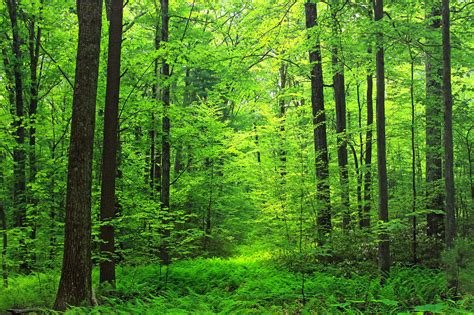
Written by Soon Li Wei & Rema Nambiar in conjunction with International Day of Forests March 21
HULU LANGAT, March 21: There’s nothing more calming than escaping from the hustle and bustle of city life and immersing oneself in the soothing embrace of lush green surroundings.
Wellness experts have expounded the benefits of forest therapy, also known as forest bathing or shinrin-yoku in Japanese, a practice that involves connecting with nature to promote physical, mental and emotional well-being.
People living in Kuala Lumpur and other urban areas in the Klang Valley need not venture far to experience forest therapy as there are tracts of forests just beyond the city limits where they can indulge in this rejuvenating activity.
Bernama recently had the opportunity to get closer to nature in a meditation programme organised by a Buddhist non-profit organisation at Viriyachan International Centre, an exclusive retreat located in Dusun Tekali here, about 30 km from the federal capital.
Set amidst the tranquil forests of Hulu Langat and surrounded by lush green hills, the centre provided a welcome respite from the city’s scorching hot weather and traffic congestion.
NATURE’S ORCHESTRA
One of the activities during the three-day/two-night programme was a meditation cum forest bathing session at a spot situated inside the jungle. To get there, about 30 participants had to trek for 20 minutes through narrow trails and undulating terrain, and even cross a stream.
They meditated as well as performed breathing exercises for 30 minutes, savouring the tranquility of their surroundings and listening to nature’s orchestra – the sounds of birds chirping, leaves rustling in the wind, water flowing from a pond into a river nearby and, occasionally, the calls of monkeys and gibbons.
Studies conducted globally have established the calming and therapeutic effects of forest therapy and the positive impact of the natural environment on mental and emotional well-being.
For the record, in an article titled ‘Environment as Alternative Therapy for Mental Health’ by Associate Prof Dr Haliza Abdul Rahman – who is head of the Faculty of Medicine and Health Sciences Laboratory at Universiti Putra Malaysia – which was published in the 2019 Journal of Psychology and Social Health, she mentioned that the latest trend in treating mental health problems includes exposing patients to natural environments, in addition to providing treatment through medications.
HEALTHY FORESTS, HEALTHY PEOPLE
Ecological Association of Malaysia president Prof Dr Ahmad Ismail told Bernama forest therapy or forest bathing and appreciating the sights, sounds and smells of a jungle can help with physical and mental health.
“Jungle trekking, forest recreational activities and ecotourism are becoming popular among people seeking happiness and better health,” he said, adding, “but there are many things we still don’t know about how forests help in improving human health through physiological and biochemical reactions.”
He said there have been studies making comparisons between going for walks in urban areas and forests, and their physiological and psychological effects on urban office workers. The findings showed the workers who went for walks in forests reported lower stress levels and an improvement in their blood pressure readings and heart rates and immune functions.
“That’s why innovations in forest conservation are important, especially in urban areas. Areas such as Bukit Persekutuan in Kuala Lumpur need to be preserved for future generations and to balance climate, environmental and health issues in Kuala Lumpur’s future communities,” he said.
The former president of the Malaysian Nature Society said healthy forests will give rise to healthy people, adding balanced ecosystems can also protect humans against natural disasters like landslides and climate change.
“Forests or trees can lower temperatures through the evaporation process by as much as 10 degrees Fahrenheit. The cooling factors can vary depending on locations and other ecological parameters such as altitude, humidity, air pressure and movement, and others,” he said.
PROTECT THE ENVIRONMENT
Meanwhile, Viriyachan International Centre founder Ng Kian Huat, who has been organising programmes incorporating meditation and forest therapy at the centre since 2018, told Bernama that based on his own experience and observations, the natural environment and its sounds such as the chirping of birds and murmur of water flowing can help one to become calmer and more focused.
“It has a positive effect on our brain,” he said, adding he found that when children connect with nature, they tend to become calmer, happier and more focused on learning.
“Natural environments can stimulate the production of happy hormones. Even children who are very active and usually have difficulty sitting still feel calmer and more focused when surrounded by nature.”
He said adults including senior citizens find forest bathing therapeutic, more so those who are constantly stressed from daily work and have no time to relax their minds.
The former building contractor also said the rapid pace of development has led to the reduction of natural forests and environmental degradation, adding awareness of the importance of conserving the environment and forests must be instilled in children from a young age.
“Children learn from the actions of their parents… so if parents are aware of environmental conservation, indirectly their children will also follow their footsteps and develop a sense of caring for nature,” he said.
— BERNAMA